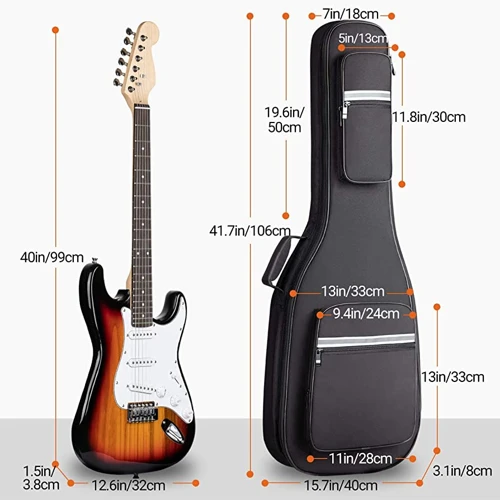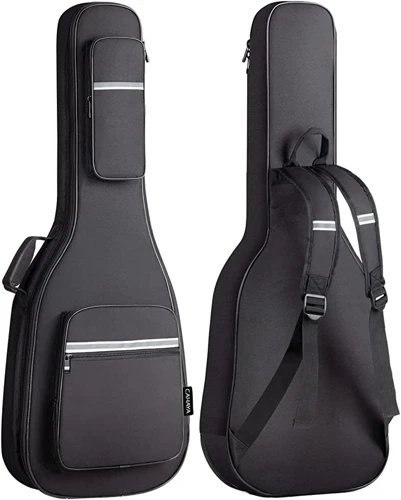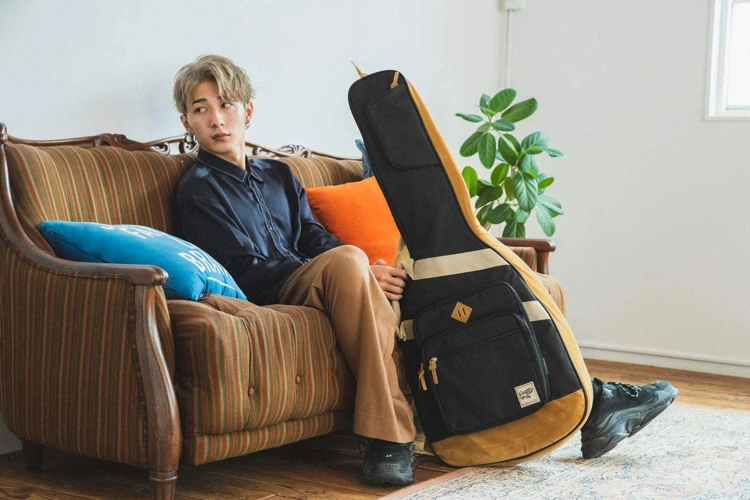Country music is a genre known for its rich history, storytelling lyrics, and twangy melodies. For many musicians in the country music scene, their guitar is their most prized possession. It’s not just a tool for creating music; it’s a symbol of their craft and passion. To protect this valuable instrument, musicians often invest in high-quality guitar cases and gig bags. In this article, we’ll explore the importance of protecting guitar cases and gig bags for country music enthusiasts.
Why Protecting Your Guitar Case and Gig Bag is Essential
Guitars are delicate instruments that require proper care and maintenance to ensure longevity and optimal performance. When it comes to country music, where guitars play a central role in creating the signature sound, protecting your instrument becomes even more crucial. Here are some reasons why safeguarding your guitar case and gig bag is essential:
1. Protection from Physical Damage
Whether you’re a touring musician or someone who plays gigs occasionally, your guitar is prone to physical damage during transportation. A sturdy guitar case or gig bag acts as a shield, protecting your instrument from bumps, drops, and other accidents that can occur on the road. Country music often involves playing in different venues and traveling long distances, making it vital to have reliable protection for your guitar.
2. Shielding from Environmental Factors
Country music is deeply rooted in nature and outdoor settings, which means musicians often find themselves performing in various environments. Extreme temperatures, humidity, dust, and moisture can all negatively impact the condition of your guitar. A well-padded guitar case or gig bag provides insulation against these environmental factors, keeping your instrument safe and sound.
3. Preventing Wear and Tear
Regular use of your guitar can lead to wear and tear over time. By keeping your instrument stored in a protective case or gig bag when not in use, you can minimize the risk of scratches, dents, and other damages that can affect both the appearance and functionality of your guitar. For country music enthusiasts who cherish their instruments, preventing wear and tear is a top priority.
4. Security and Peace of Mind
Guitars are not just expensive musical instruments; they hold sentimental value for many musicians. Losing or damaging a guitar can be devastating, both financially and emotionally. Investing in a durable guitar case or gig bag provides added security, giving you peace of mind knowing that your instrument is safe and secure wherever you go.
Types of Guitar Cases and Gig Bags
When it comes to protecting your guitar, there are various options available in the market. Here are some common types of guitar cases and gig bags that are popular among country music enthusiasts:
1. Hardshell Cases
Hardshell cases are made of durable materials such as wood, ABS plastic, or fiberglass, providing maximum protection for your guitar. These cases feature plush interiors to cushion the instrument and secure latches to keep it in place. Hardshell cases are ideal for touring musicians and those who need robust protection for their guitars.
2. Soft Gig Bags
Soft gig bags are lightweight and portable options for musicians who prefer a more convenient carrying solution. These bags are typically made of padded nylon or polyester and feature pockets for storing accessories. While soft gig bags may not offer as much protection as hardshell cases, they are suitable for casual use and short-distance travel.
3. Hybrid Cases
Hybrid cases combine the durability of hardshell cases with the portability of soft gig bags. These cases feature a rigid exterior for protection against impacts and a padded interior for added cushioning. Hybrid cases are a versatile option for musicians who want the best of both worlds in terms of protection and convenience.
4. Custom-Made Cases
For musicians with unique guitar models or specific preferences, custom-made cases offer a tailored solution. These cases are designed to fit your guitar perfectly, providing a snug and secure fit. Custom-made cases can be personalized with additional features such as extra padding, reinforced corners, and custom artwork to suit your individual style.
Tips for Choosing the Right Guitar Case or Gig Bag
With so many options available, selecting the right guitar case or gig bag can be overwhelming. Here are some tips to help you choose the best protection for your beloved instrument:
1. Consider Your Usage
Think about how you intend to use your guitar case or gig bag. If you’re a frequent traveler or touring musician, a hardshell case may be more suitable for long-term protection. For casual players or those who play locally, a soft gig bag may suffice.
2. Prioritize Protection
The primary purpose of a guitar case or gig bag is to protect your instrument. Look for features such as padded interiors, secure closures, and durable materials that can withstand wear and tear. Opt for a case that offers adequate protection based on your needs and budget.
3. Check for Fit
Ensure that the guitar case or gig bag you choose fits your instrument properly. A well-fitted case will prevent your guitar from shifting during transport, reducing the risk of damage. Most manufacturers provide compatibility information, so be sure to check the dimensions before making a purchase.
4. Evaluate Portability
If you plan to carry your guitar around frequently, consider the portability of the case or gig bag. Soft gig bags are lightweight and easy to transport, while hardshell cases offer superior protection but may be heavier and bulkier. Choose a design that balances protection with convenience.
Maintaining Your Guitar Case and Gig Bag
Once you’ve invested in a quality guitar case or gig bag, it’s essential to maintain and care for it properly to ensure its longevity. Here are some tips for keeping your protective gear in top condition:
1. Clean Regularly
Dust, dirt, and debris can accumulate on the exterior of your guitar case or gig bag over time. Wipe down the surfaces with a damp cloth or gentle cleaning solution to remove any buildup and keep your protective gear looking fresh.
2. Store Properly
When not in use, store your guitar case or gig bag in a cool, dry place away from direct sunlight and moisture. Avoid placing heavy objects on top of the case, as this can cause damage to the exterior or compress the padding inside.
3. Inspect for Damage
Regularly inspect your guitar case or gig bag for any signs of wear or damage. Check the zippers, handles, and seams for any loose threads or tears that may compromise the integrity of the protective gear. Address any issues promptly to prevent further damage.
4. Avoid Extreme Conditions
Extreme temperatures, humidity, and exposure to moisture can affect the materials of your guitar case or gig bag. Avoid storing your protective gear in areas prone to fluctuations in temperature or humidity, as this can lead to warping, mold growth, or other damage.
Looking to protect your guitar while on the road? Check out our top picks for acoustic guitar cases and delay pedals for country music enthusiasts. Don’t forget to also explore our selection of guitar straps with a rich history in country music culture. And if you’re looking for tips on how to securely hold your guitar pick, we’ve got you covered!
Conclusion
In the world of country music, where guitars are at the heart of the genre, protecting your instrument is paramount. Investing in a high-quality guitar case or gig bag not only safeguards your guitar from physical damage and environmental factors but also provides peace of mind knowing that your instrument is secure. By choosing the right protection for your guitar and maintaining it properly, you can ensure that your beloved instrument remains in pristine condition for years to come. So, whether you’re strumming classic country tunes or rocking out to modern hits, remember to keep your guitar safe and sound with the right protective gear.



